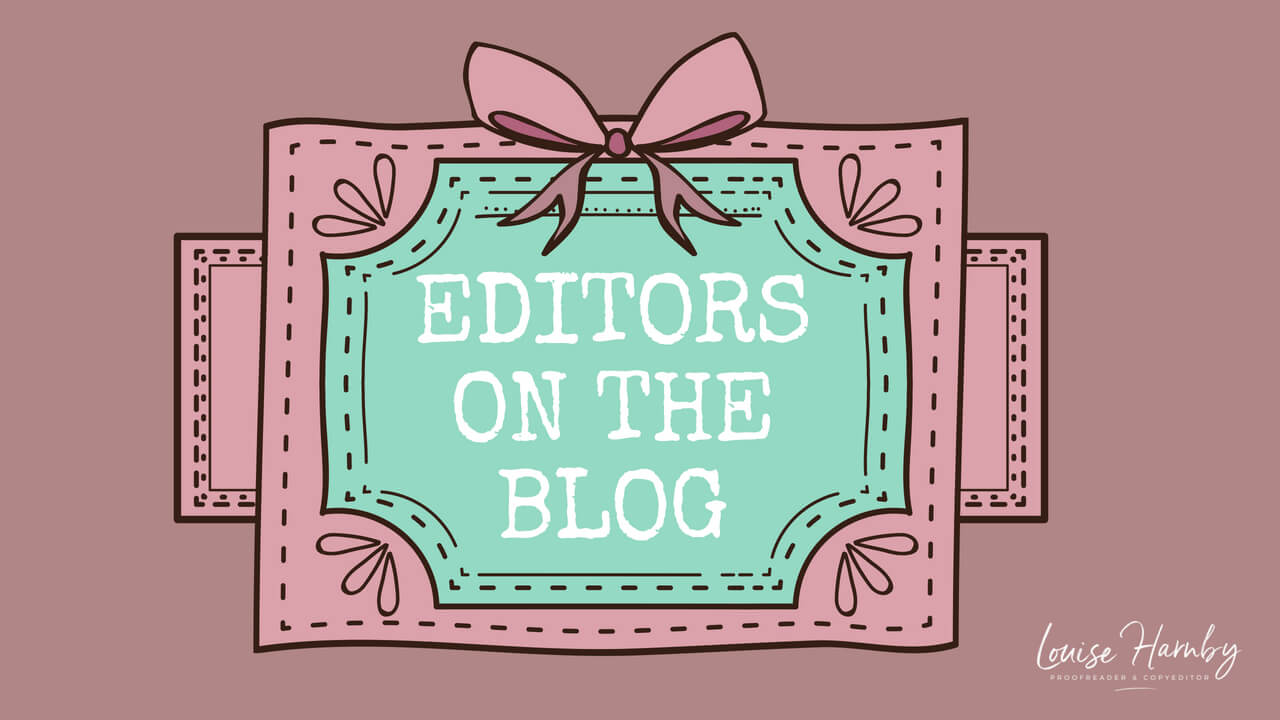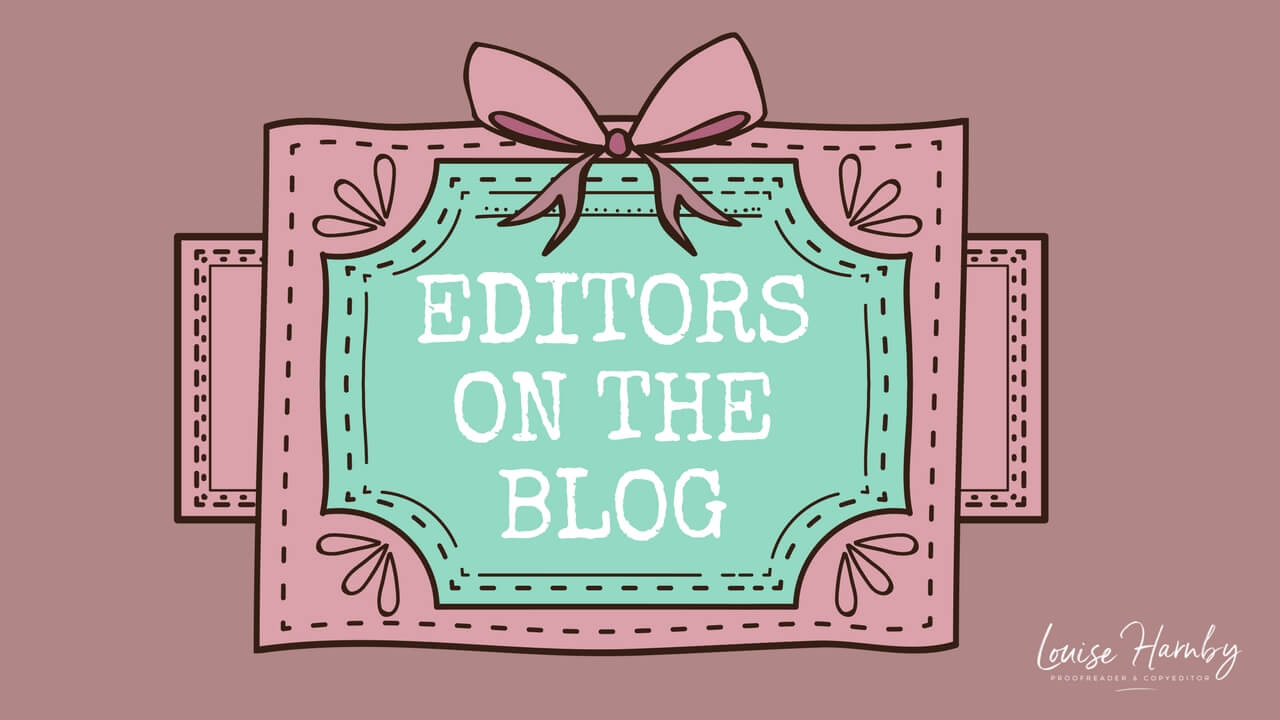|
Editors on the Blog is a monthly column curating some of the best posts from the editing community – articles written by editors and proofreaders for colleagues and clients alike.
My thanks to this month's contributors!
THE BUSINESS OF EDITING
CLIENT FOCUS: BUSINESS AND OTHER NON-FICTION
CLIENT FOCUS: FICTION
EDITING IN PRACTICE
LANGUAGE MATTERS
To include your article in next month's edition of Editors on the Blog, click on the button below. The deadline is 10 September 2018.
Louise Harnby is a line editor, copyeditor and proofreader who specializes in working with independent authors of commercial fiction, particularly crime, thriller and mystery writers. She is an Advanced Professional Member of the Society for Editors and Proofreaders (SfEP), a member of ACES, and a Partner Member of The Alliance of Independent Authors (ALLi). Visit her business website at Louise Harnby | Proofreader & Copyeditor, say hello on Twitter at @LouiseHarnby, or connect via Facebook and LinkedIn.
2 Comments
Editors on the Blog is a monthly column curating some of the best posts from the editing community – articles written by editors and proofreaders for colleagues and clients alike.
My thanks to this month's contributors!
THE BUSINESS OF EDITING
CLIENT FOCUS: BUSINESS AND OTHER NON-FICTION
CLIENT FOCUS: FICTION
EDITING IN PRACTICE
LANGUAGE MATTERS
To include your article in next month's edition of Editors on the Blog, click on the button below. The deadline is 16 July 2018.
Louise Harnby is a fiction line editor, copyeditor and proofreader who specializes in supporting self-publishing authors, particularly crime writers. She is an Advanced Professional Member of the Society for Editors and Proofreaders (SfEP) and an Author Member of The Alliance of Independent Authors (ALLi).
Visit her business website at Louise Harnby | Proofreader & Copyeditor, say hello on Twitter at @LouiseHarnby, or connect via Facebook and LinkedIn. |
BLOG ALERTSIf you'd like me to email you when a new blog post is available, sign up for blog alerts!
TESTIMONIALSDare Rogers'Louise uses her expertise to hone a story until it's razor sharp, while still allowing the author’s voice to remain dominant.'Jeff Carson'I wholeheartedly recommend her services ... Just don’t hire her when I need her.'J B Turner'Sincere thanks for a beautiful and elegant piece of work. First class.'Ayshe Gemedzhy'What makes her stand out and shine is her ability to immerse herself in your story.'Salt Publishing'A million thanks – your mark-up is perfect, as always.'CATEGORIES
All
ARCHIVES
July 2024
|
|
|
|

















 RSS Feed
RSS Feed





